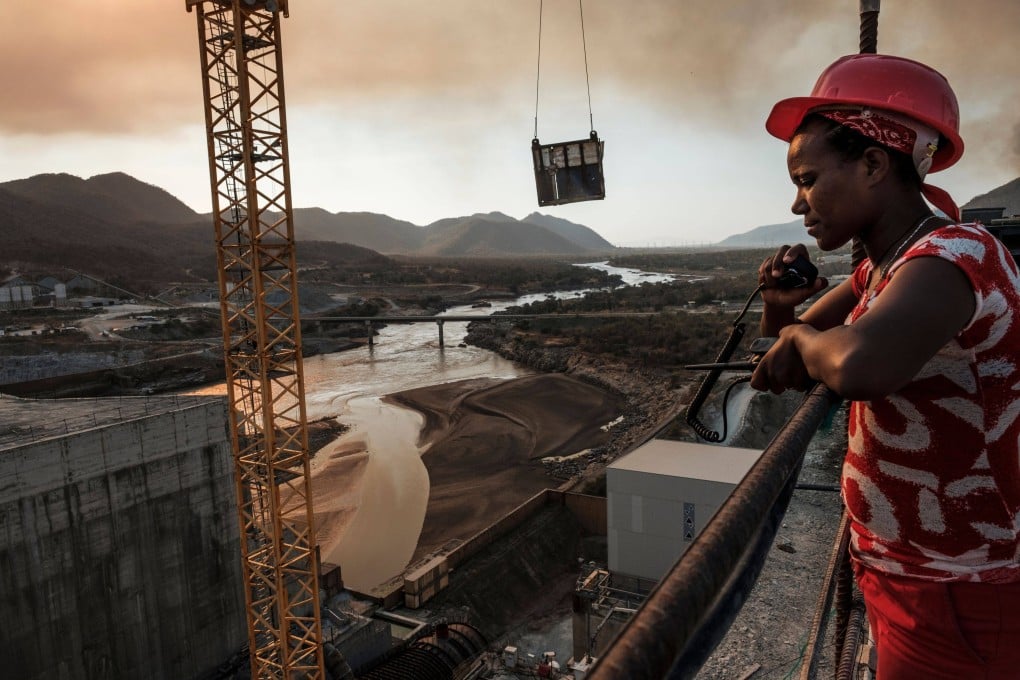Advertisement
Ethiopian dam could muddy the waters of China’s position as a global leader
A long-running dispute over the Grand Ethiopian Renaissance Dam could force Beijing into an impossible situation, observers say
Reading Time:6 minutes
Why you can trust SCMP
1

Two dozen leaders from emerging economies are gathering in the southwestern Russian city of Kazan under the Brics banner this week to discuss political, economic and security cooperation. In the second of a two-part series, Jevans Nyabiage looks at a major African dilemma for China.
In recent years, China has worked hard to position itself as a leader for developing nations, particularly through organisations such as the UN and Brics. But now a dam in Ethiopia is threatening to rock the boat, destabilising Beijing’s delicate geopolitical balancing act.
With a total capacity of 74 billion cubic metres, the US$4.6 billion Grand Ethiopian Renaissance Dam (GERD) on the Blue Nile is set to be the largest hydroelectric power plant in Africa. But more than 2,500km (1,553 miles) downstream, Egypt is unimpressed with the project, voicing concerns that the dam will drain its own much-needed water supply.
Relations between the countries – as well as Sudan which sits between them and also relies on water from the Blue Nile – have soured as a result, particularly since Addis Ababa began filling the reservoir behind the dam in 2020. The fifth phase of filling the dam was completed last month.
Yet on the geopolitical stage, both Ethiopia and Egypt were among six nations invited to join the Brics bloc in an announcement at the annual summit in South Africa last year. Brics – which stands for Brazil, Russia, India, China and South Africa – is an association of emerging global economies. Russian President Vladimir Putin is set to open this year’s summit on October 22 in the city of Kazan, which will be the first meeting of all Brics+ countries.
This puts China in an awkward position. While some observers have noted that China’s standing as a global peacemaker and mediator has expanded in recent times, others say Beijing is now facing the daunting task of trying to intervene in the GERD dispute while also remaining firm on its non-interference policy in Africa.
Lukas Fiala, coordinator of China Foresight at LSE Ideas, a London School of Economics think tank, said the GERD issue may well be a test case to evaluate China’s increasingly complex relationship with the Global South and Africa in particular.
Advertisement